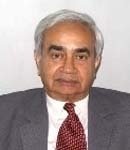Ill Begun, Half Undone: Congress in Power
27 May, 2004 · 1396
P R Chari says the initial policy pronouncements of the Congress do not reflect the realization that misgovernance brought down the previous government
The euphoria within the Congress party and its allies on achieving power after six years in the political wilderness is explicable. Whether they will reflect on the reasons why the BJP and its allies were defeated so comprehensively in the 14th General Elections is another matter. Notoriously, in India, politicians and political parties only learn from their own mistakes. But they would do well to realise that a negative vote against the misgovernance of the NDA government has brought them into power; five years down the line the tables could be turned and history repeat itself.
These dour prognostications are informed by the two serious compromises already made by the new Government that will adversely impinge on their future functioning.
First, the Prime Minister forthrightly spoke out against populist policies involving predatory raids on the exchequer, resulting in budget deficits and funds being unavailable for developmental tasks. But he condoned the new Andhra Chief Minister, Rajashekhara Reddy’s, first decision in office to provide free electricity to the agricultural sector. The loss of revenues that will be suffered by Andhra Pradesh’s impecunious State Electricity Board is a governance issue, since it would affect future power generation programmes. Besides, the Board’s losses will have to be met from either the general revenues or subsidies from the Centre. The Prime Minster knows this, but political compulsions [Rajashekhara Reddy belongs to the Congress] led his turning a Nelson’s eye towards this gross financial indiscipline.
Second, political compulsions also explain the compromises made by the Sonia Gandhi/ Manmohan Singh duo in Cabinet formation. The media has railed against the Cabinet’s geriatric composition, and the absence of young foreign-educated, management-trained Members of Parliament who could bring a modern outlook to bear on the government. Moreover, these geriatric personages include several politicians known to be communalists, corrupt, and also having distinguished criminal antecedents. Details are unnecessary as they are only too well known. Thereafter, the public squabbling and private bargaining by these worthies to gain ‘lucrative’ Ministries for transparent reasons that require no elaboration has presented the country with an unedifying spectacle.
All this has been passed off by the apologists as being occasioned by the compulsions of coalition politics. But the UPA (United Progressive Alliance) must appreciate that the major issue on which past governments in India have been unseated over the last three decades is governance or, stated conversely, misgovernance. The national election verdict is believed, rightly, to be a summation of the results and the situation obtaining in the States where the problems of governance are most visible. In the run-up to the elections, the BJP had deliberately made governance a critical issue in their electioneering. They had surmised, correctly, that the defeat a few months earlier of the Congress-ruled States in Rajasthan, Madhya Pradesh and Chattisgarh was due to their misgovernance or lack of governance. But the BJP erred grievously thereafter in believing that governance was limited to, and could be encapsulated within, their BSP [Bijli, Sadak, Pani] or Electricity, Roads, Water formula.
Good governance includes these physical aspects of an enlightened development programme, but it also requires the State to visibly and credibly reveal that they are leading the fight against major ills like communalism, corruption and criminalization of the polity. Good governance in the Indian milieu embraces much else like ensuring that the poor have access to the public services, and they do not become private services for the rich and powerful. Can members of the public honestly claim that they wish to have any interaction with the government for even minor services like getting an electricity connection/ water meter or applying for a driving license or filing a complaint in a police station or getting a ration card? And, what is the state of public education, public health, and social welfare programmes, ostensibly meant for the poor, who cannot afford the private institutions available to the middle and rich classes who have no need for these services. Poverty alleviation programmes have only succeeded in enriching their administrators!
This litany of woes can be multiplied. The essential point being made is that true good governance is the important issue confronting the UPA government. Will it prove to be different from its predecessors? Its current decisions and actions suggest that nothing has changed, which augurs ill for the reputation of the UPA government, and the governance it will provide the nation. These are early days. The voters are indulgent, and will give the UPA ample time to settle down, and get on with its job. They will, however, be keenly watching its performance. Should the UPA government lose itself in petty politicking and malfeasance, while distancing itself from the electors, retribution is inevitable after five years, if not earlier.


